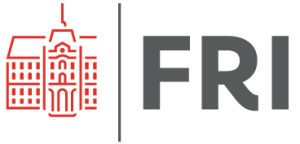Ali bi radi vedeli kako se lahko računalnik spremeni v orodje za obdelavo glasbe, govora, slike, telekomunikacijskih, navigacijskih in medicinskih signalov? Pogosto brez kakršnekoli dodatne opreme, samo z uporabo znanja! Ali veste, da je vaš mobilni telefon pravzaprav računalnik, ki izvaja programe za digitalno procesiranje signalov? Ali da se pri uporabi ADSL modema in pri gledanju digitalne televizije vsako sekundo opravi več sto milijonov seštevanj in množenj? Odgovorom na vprašanje, kako je to mogoče in kakšna znanja so potrebna za to, je namenjen predmet Digitalno procesiranje signalov.
V okviru predmeta si bomo najprej ogledali kaj so signali in s kakšnimi matematičnimi orodji jih opisujemo. Za delo z njimi potrebujemo diskretne sisteme, ki omogočajo pretvorbo signalov v drugačne oblike. Spoznali bomo najpogostejše vrste takih sistemov in načine za določanje njihovih parametrov. Videli bomo kako se izračunajo filtri, kako se določajo spektri in kako se lahko ugotovi prisotnost v šumu skritega signala. Ker je pri signalih hitrost računanja ključnega pomena, bomo iskali hitre algoritme, s katerimi je mogoče doseči delovanje v realnem času. Pri laboratorijski vajah bomo obravnavali veliko praktičnih primerov in aktualnih problemov, na katerih bo mogoče preizkusiti vaše pridobljeno znanje. Med problemi so npr. sinteza strunskih instrumentov, odpravljanje nezaželenih odmevov, lociranje izvora zvoka v prostoru, uporaba filtrov, 3D zvok, detekcija zvokov, razpoznavanje govora in identifikacija govorca.
Multimedijska predstavitev: http://prezi.com/zxdmg2osfn6d/dps-predstavitev-izbirnega-predmeta/
Would you like to know how to transform a computer into a tool for processing music, speech, picture, telecommunication, navigation and medical signals? Often without any additional hardware, simply by using knowledge. Do you know that you cell phone is in fact a computer which executes signal processing software? Or that several hundred million additions and multiplications are performed every second when an ADSL modem or a digital television is used? Answering questions like how is this possible and what knowledge is needed is the purpose of Digital signal processing course.
We will begin with a question what signals are and what mathematical tools are needed to describe them. For signal processing we need discrete systems which transform signals into different forms. We will learn about the most common types of such systems and about methods that give their parameters. We will see how the filters are designed, how the spectrum of a signal is computed, and how a signal that is hidden in the noise can be extracted. Since the speed of computation is extremely important we will search for fast algorithms that allow real time implementations. In the laboratory we will, in addition to the standard computers, use special signal processors on which your solutions to the problems can be tested. Among the problems there are synthesis of string instruments, removal of undesirable echoes, location of the acoustics source in space, speech recognition, and speaker identification.
- nosilec: Robert Rozman
